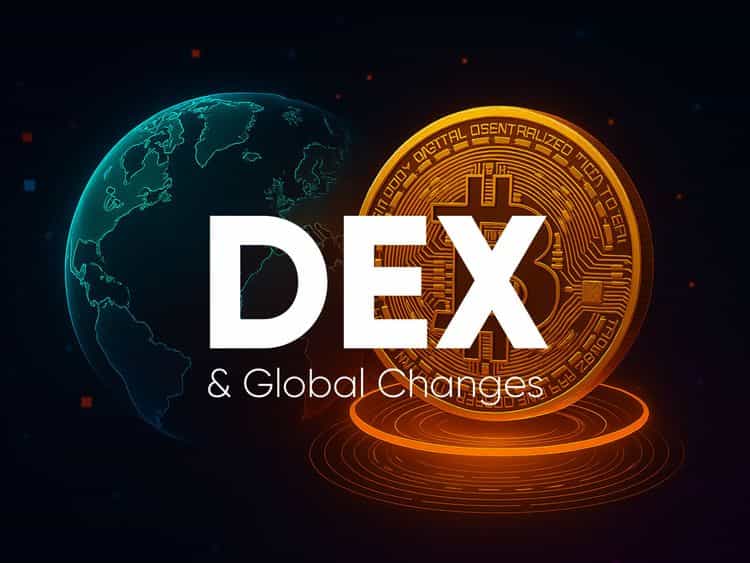The Impact of Global Crypto Policies on Decentralized Exchanges (DEX)


The cryptocurrency world is evolving rapidly, and global crypto regulations are now becoming a defining factor in shaping the future of decentralized finance (DeFi). Among the innovations facing these changes are decentralized exchanges (DEXs), which have traditionally offered peer-to-peer trading without the need for intermediaries. However, the increased pressure from governments and international bodies means that understanding how global crypto policies impact DEXs is crucial for anyone engaged in crypto trading today.
Understanding Global Crypto Policies and Their Implications
Global crypto policies refer to the collective laws, regulations, and guidelines established by governments and financial authorities to manage the explosive growth of digital assets, curb financial crimes such as money laundering and fraud, and protect investors from market volatility and scams. In major economies like the United States and the European Union, regulatory frameworks are becoming increasingly stringent. The U.S. Securities and Exchange Commission (SEC) and Commodity Futures Trading Commission (CFTC) are actively targeting crypto-related activities, while the EU's Markets in Crypto-Assets Regulation (MiCA) seeks to create standardized rules across member states. On the other hand, countries like Switzerland and Singapore maintain more crypto-friendly environments, encouraging blockchain innovation under clear but lenient guidelines. Despite these advancements, the global crypto regulatory landscape remains fragmented. This lack of consistency poses major international compliance challenges for crypto platforms, forcing them to navigate a patchwork of rules, often at odds with one another.
How Global Policies Affect Decentralized Exchanges?
Although decentralized exchanges operate without a centralized authority, regulators are increasingly viewing them as financial entities subject to similar rules as centralized exchanges. Initially, DEXs were perceived as purely technical platforms with no organizational body behind them. Today, however, regulatory focus is shifting, and DEXs are being pulled into the legal spotlight. Global crypto regulations now extend their reach beyond centralized services, targeting the infrastructure and developers behind decentralized protocols. Some authorities argue that any platform facilitating financial transactions must comply with legal standards, regardless of how decentralized it claims to be. This expansion into the decentralized realm introduces significant operational challenges for DEXs and demands a rethinking of how they function within the legal frameworks being imposed.
Decentralization is the future. It's harder to regulate, but that's the point, to empower people, not control them.— Vitalik Buterin, co-founder of Ethereum
Challenges for DEXs in Complying with International Laws
One of the most significant hurdles for decentralized exchanges is their inherently borderless and anonymous nature. Traditional regulatory frameworks are built around the idea of jurisdiction, a specific national or regional authority overseeing operations. DEXs, however, run on smart contracts deployed on blockchains that have no borders. This mismatch raises fundamental questions: Who is legally responsible if something goes wrong? How can authorities enforce regulations against an autonomous protocol? The lack of clear points of accountability complicates enforcement actions, investigations, and even basic compliance with financial reporting standards. Furthermore, maintaining detailed transaction records or performing customer due diligence is difficult when user identities are pseudonymous or entirely anonymous.
The Role of KYC and AML Requirements in Shaping DEX Operations
Know Your Customer (KYC) and Anti-Money Laundering (AML) regulations are essential pillars of modern financial oversight. Governments worldwide expect trading platforms to collect user information, verify identities, and monitor transactions to detect and prevent illicit activities. For decentralized exchanges, meeting these standards without compromising their foundational principle of user sovereignty is a daunting task. To bridge the gap, some DEXs are experimenting with optional KYC layers, where users can access additional features if they verify their identity, while maintaining basic, limited-access services without KYC. Others are embracing decentralized identity (DID) solutions, allowing users to prove their eligibility or reputation without revealing their personal information. Balancing compliance obligations while preserving privacy and decentralization is becoming a critical competitive advantage for forward-thinking platforms.
Strategies for Decentralized Exchanges to Navigate Regulatory Challenges
To survive and thrive in an environment of tightening global regulation, DEXs are implementing innovative strategies aimed at achieving compliance without losing their decentralized nature. Key approaches include:
Integrating Decentralized Identity (DID) Systems:
DIDs provide a way for users to verify certain aspects of their identity while maintaining control over their personal information, striking a compromise between privacy and regulatory needs.
Forming Decentralized Autonomous Organizations (DAOs):
By shifting governance to a distributed community of token holders, DEXs can reduce their exposure to legal liability and align with the decentralized ethos that regulators recognize differently from traditional businesses.
Geo-blocking Users from Heavily Regulated Jurisdictions:
Some DEXs are proactively blocking users from jurisdictions with strict regulations, such as the U.S. or EU member states, to avoid regulatory entanglements.
Embedding Smart Compliance Tools:
New compliance tools are being embedded directly into smart contracts, automating tasks like transaction monitoring, reporting suspicious activity, and ensuring regulatory thresholds are respected.
Each of these solutions aims to align DEX operations more closely with legal expectations while keeping the essence of decentralization intact.
The Future of Decentralized Exchanges Under Evolving Global Policies
As global crypto policies continue to mature, decentralized exchanges face a clear imperative: adapt or risk irrelevance. However, adaptation doesn't mean surrendering decentralization altogether. Rather, it means designing more sophisticated, hybrid models that reconcile the ideals of DeFi with the realities of modern financial law. Projects that innovate responsibly, integrating compliance features without compromising user autonomy, will be well-positioned to lead the next phase of DeFi. The DEXs that succeed will likely look very different from their predecessors: more structured, better governed, and yet still free from the centralized control that characterizes traditional finance.

Potential Shifts in DEX Design and Functionality
Emerging trends suggest that the future design of decentralized exchanges will incorporate:
Cross-chain platforms like Rango Exchange are already leading the way, offering interoperable solutions that enable users to interact with multiple blockchains while maintaining compliance standards across jurisdictions.
Conclusion
Global crypto policies represent a major turning point for decentralized exchanges. Far from being existential threats, these regulations offer DEXs an opportunity to mature, innovate, and expand their influence. By integrating strategic compliance measures while preserving the fundamental ideals of decentralization, the next generation of DEXs can not only survive but thrive under regulatory scrutiny. The decentralized exchanges that adapt intelligently will be the ones to drive the future of finance, open, accessible, and legally resilient.
Resources
Chainalysis: 2024 Crypto Crime Report
Blockworks: DEXs Face Increasing Regulation
Crypto News: Navigating Regulatory Challenges in DeFi
Frequently asked questions
Check out most commonly asked questions, addressed based on community needs. Can't find what you are looking for?
Contact us, our friendly support helps!
Why are decentralized exchanges affected by global crypto regulations?
Even though DEXs lack central control, regulators expect any trading platform to comply with laws designed to protect users and fight illicit activities, forcing DEXs to adapt.
How can DEXs comply with KYC and AML without compromising decentralization?
By integrating decentralized identity solutions and offering flexible compliance options, DEXs can maintain user privacy while meeting legal requirements.
What changes can we expect in DEXs as regulations tighten?
Future DEXs may feature hybrid models that blend decentralization with regulated access, embedded compliance mechanisms, and stronger governance structures.




